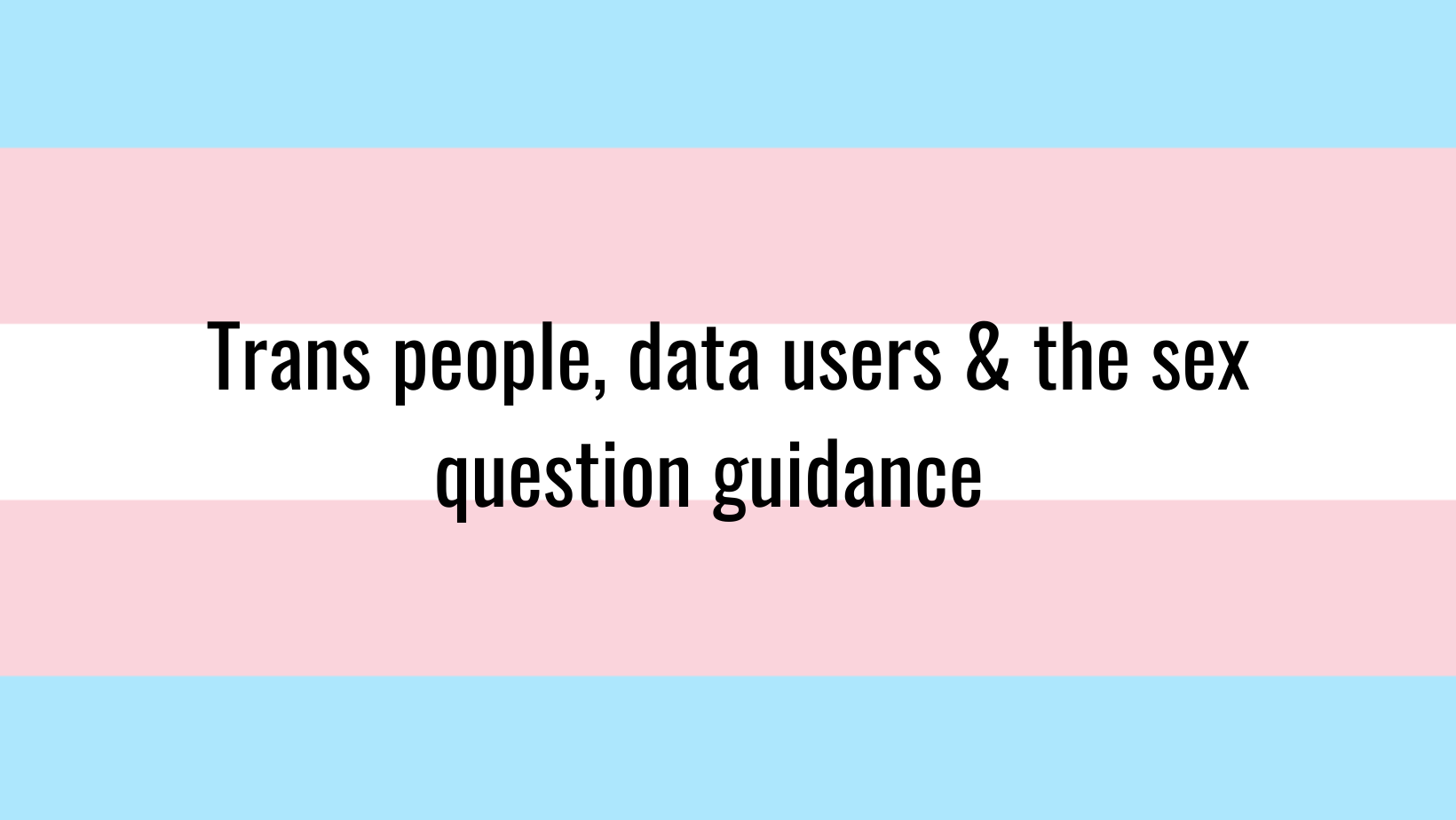Trans people, data users & the sex question guidance
Published:

ONS has decided to take two steps forward and one step back when it comes to representing LGBTQ+ people in the 2021 census for England and Wales. The 2021 census will be the first to ask about sexual orientation and if respondents identify with their sex registered at birth. However, progress surrounding the sex question has been limited due to the UKs surge in transphobia. In 2011 responding to trans peoples’ uncertainty surrounding the sex question ONS stated that:
This means that trans women tick female and trans men tick male (no accurate representation for people outwith the binary). Despite data consistency over time being an important factor when designing reoccurring data collection ONS have decided to change the guidance to the following:
If followed this guidance would change how people who don’t identify with their sex registered at birth respond to the sex question.
How this impacts trans people
It makes responding to the census more confusing given that some people will have passports and birth certificates that do not match.
The purpose of the sex question according to ONS is to “identify discrimination or social exclusion based on sex”. The new guidance if followed would prevent this for trans people. A trans person’s documentation does not determine how they are treated. There is nothing material that distinguishes trans people with and without GRCs or updated passports other than the resources and desire to engage with the bureaucratic and sometimes distressing systems to obtain them.
If trans people respond to the sex question based on how they identify and also answer the sex registered at birth question we would then have an estimate of how many trans men and trans women there are. Understanding the gender demographics of the trans community is useful for LGBTQ+ organisations trying to meet our needs. However, if the new guidance is followed, we won’t have clear gender data on the trans community as the way trans people respond will differ based on their documentation. This will then impact what planning can be done for meeting trans peoples needs.
The final impact for trans people is the disrespect for our ability to know ourselves and the worrying president this change creates. Legal documentation has never been mentioned in regard to census responses before. All census responses are self-identified given the very nature of how census data is collected. No one checks the “accuracy” of census responses because we respect people’s ability to know themselves.
How this impacts data users
NRSfound that people rarely engage with this type of guidance. Even among trans and non-binary people only 25% read sex question guidance. Given this data users will have no strong basis to assume that people responded based on their documentation. Meaning that the guidance is useless.As stated previously if the guidance was to be followed by all respondents data users still wouldn’t be able to tell which trans people had accurate documentation and therefore responded based on their identity and which did not. This can not/should not be checked at any time due to it being a breach of privacy and the principles of self-completed data collection.
Advice to trans people
Respond to the census but ignore the sex question guidance. Respond based on how you identify, you know yourself best. No one will be checking, and you won’t get in any trouble for doing this. Legally everyone must submit a census form or face a fine. Regardless of that the census this year is particularly important for LGBTQ+ people, so it is important you complete it(seethis resourcefor more information). If like myself your not a man or woman things are more difficult given the binary nature of the question and the fact it’s mandatory. Mandatory means that on the online version of the census you won’t be able to skip it. On an unrelated note you can also request a paper copy, information on how to do so will be featured on the letter you receive prior to the census day (March 21st).
Advice to data users
To fellow data users, if you are concerned about the impact this may have on data quality there are two things to keep in mind. First, the 2011 data was based on lived sex guidance and we used without any issue. Prior to that there was no guidance at all, which means we don’t know how trans people responded. Treat the data from this year’s census with the same pinch of salt you should have been treating previous years. Second, why on earth would you want people to be providing data that has little to no relevance to how they live and that they are unwilling to provide. Have a word with yourself if you think there is anything useful or ethical about that type of data.
It’s my personal view that if the guidance had remained the same and ONS had been clear about that further in advance campaigning could have occurred to ensure that most trans people respond based on how they live. This would have resulted in accurate and useful data rather than the needlessly limited data that we will end up with.


